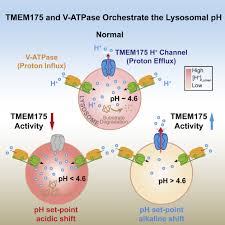Understanding Parkinson’s Disease: Latest Insights and Developments

Introduction
Parkinson’s Disease (PD) is a progressive neurodegenerative disorder that primarily affects movement. As one of the most common neurological conditions globally, it impacts millions of individuals and their families. Understanding PD is crucial not only for those diagnosed but also for caregivers, health professionals, and society at large. The disease poses significant challenges to daily living and necessitates ongoing research into its causes, treatment, and management strategies.
Current State of Parkinson’s Disease
As of 2023, approximated figures indicate that around 145,000 individuals are living with Parkinson’s Disease in the UK alone. The condition generally manifests through motor symptoms such as tremors, rigidity, bradykinesia (slowness of movement), and postural instability. In addition to these, non-motor symptoms including cognitive impairment, depression, and sleep disorders are increasingly recognised as pivotal to patient management.
Recent Research Developments
Recent advancements in Parkinson’s research have shed light on the underlying pathophysiology of the disease. Studies have shown that alterations in gut microbiota may be linked to PD, suggesting that gastrointestinal health could play an important role in the management of symptoms. Moreover, researchers are exploring the genetic factors associated with the disease, presenting new avenues for targeted therapies.
Clinical trials focusing on disease-modifying therapies are also gaining momentum. In recent months, potential breakthroughs in drug development have shown promise in slowing the progression of the disease. Anti-inflammatory drugs and neuroprotective agents are under investigation and may offer hope to patients facing untreated progression.
Patient Impact and Support
The diagnosis of Parkinson’s Disease can have profound social and emotional impacts. Patients often face significant lifestyle adjustments, requiring comprehensive support systems that include healthcare providers, family, and support groups. The Parkinson’s Foundation and other organisations continue to provide essential resources, education, and community support to assist those affected.
Conclusion
As research progresses, the landscape of Parkinson’s Disease continues to evolve, highlighting the importance of awareness and early diagnosis. With ongoing commitment to research and support, there is hope for improved treatment options and quality of life for those living with PD. Advocacy for patient rights and increased funding for research remains crucial as we work towards a future where Parkinson’s Disease can be effectively managed or even prevented.
You may also like

The Role of Metro Systems in Modern Cities

Costa Coffee’s Commitment to Sustainability in 2023
